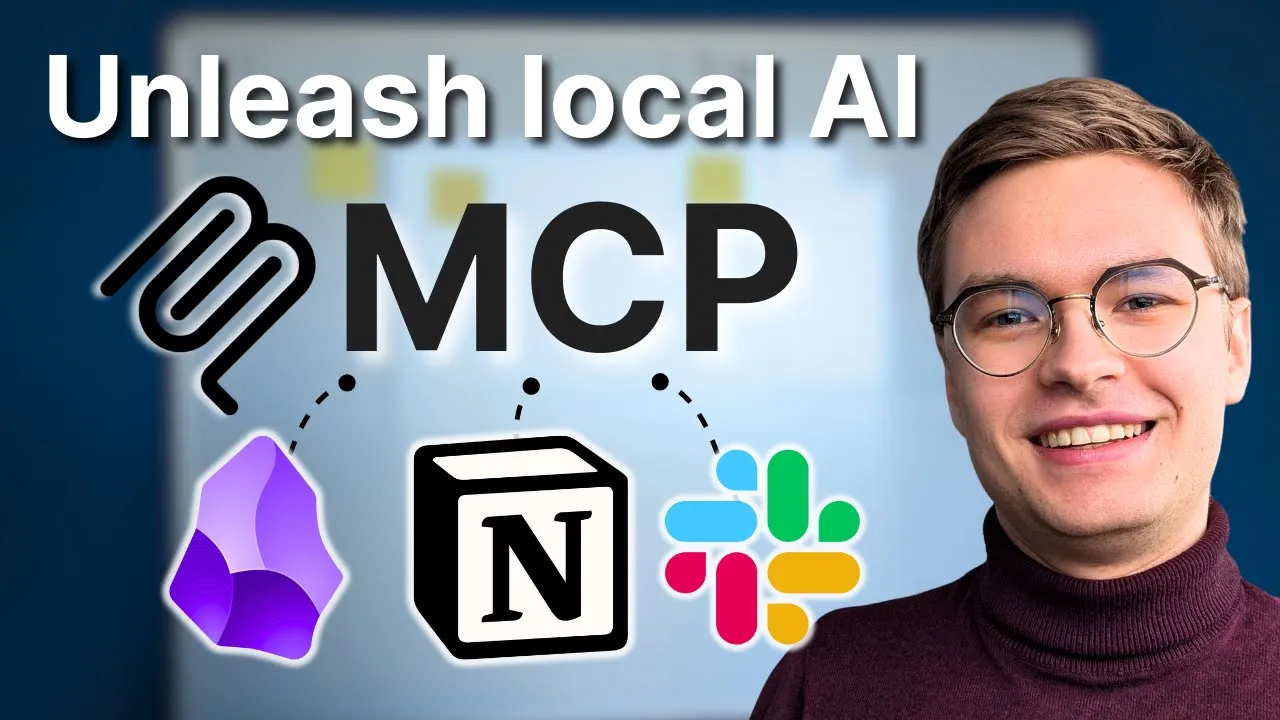Unlocking AI Integration with Model Context Protocol
The world of AI is evolving beyond isolated, standalone systems toward interconnected solutions that harness the power of specialized services. At the heart of this evolution is the Model Context Protocol (MCP), a revolutionary approach to connecting AI models with external tools and systems while maintaining complete privacy and security.
What is Model Context Protocol?
MCP serves as a translation layer between AI models and external services. Rather than requiring complex integrations or exposing sensitive data to cloud services, MCP allows locally-hosted AI models to seamlessly interact with specialized tools, databases, and applications without compromising privacy.
The brilliance of this approach lies in its simplicity: when an AI model determines it needs external functionality, it can format a specific request that MCP understands. This request is then translated into appropriate API calls to the target service, with results returned to the AI in a format it can process. For hands-on experience building these integration patterns, see my complete AI agent development guide.
The Strategic Advantage of Local AI Integration
Integrating locally-hosted AI models with external services offers several key advantages:
- Complete Privacy: Your data and prompts remain on your local system, never exposed to cloud services or third parties
- Customized Functionality: Connect your AI model precisely to the services and tools most relevant to your specific needs
- Cost Efficiency: Reduce or eliminate the ongoing costs associated with cloud-based AI services
- Reduced Latency: Local processing combined with targeted external calls can deliver faster overall performance
Real-World Applications
The practical applications of MCP extend far beyond theoretical benefits. Consider knowledge management systems like Obsidian, where an MCP server can enable your local AI model to:
- Search through personal knowledge bases to find relevant information
- Generate connections between seemingly unrelated notes
- Create new documents that synthesize insights from multiple sources
- Identify gaps in your knowledge or research
This approach transforms static note-taking systems into dynamic knowledge networks that continuously evolve with AI-powered insights while keeping your personal data completely private. To understand how to implement similar knowledge systems in production, explore my comprehensive RAG systems tutorial.
Building Connected-Yet-Private AI Systems
The future of AI lies in finding the optimal balance between connectivity and privacy. MCP represents a significant step in this direction by enabling:
- Secure connections between local models and specific external services
- Granular control over what data is shared and when
- The ability to combine the strengths of multiple specialized tools
- Protection against vendor lock-in through standardized protocols
This protocol-based approach creates a foundation for AI systems that can grow more capable over time without sacrificing privacy or security.
Beyond Individual Tools
What makes MCP particularly powerful is its extensibility. Rather than being limited to a single service, MCP allows your AI to potentially connect with many different tools, creating a network of capabilities that far exceeds what any single system could provide.
This opens the door to AI systems that can:
- Query specialized databases for domain-specific information
- Interact with content management systems
- Access personal productivity tools
- Connect with IoT devices and home automation systems
All while maintaining the privacy and security advantages of local AI operation.
The Power of Conceptual Integration
The true value of MCP isn’t just in technical integration but in conceptual integration, bringing together ideas, data, and capabilities in ways that create entirely new possibilities. By enabling AI models to access and manipulate information across system boundaries, MCP facilitates the kind of cross-domain insights that drive innovation.
For organizations and individuals looking to harness AI while maintaining control over their data, Model Context Protocol represents not just a technical solution but a strategic approach to the future of intelligent systems. For a complete overview of building these capabilities professionally, follow my AI engineering career roadmap.
To see exactly how to implement these concepts in practice, watch the full video tutorial on YouTube. I walk through each step in detail and show you the technical aspects not covered in this post. If you’re interested in learning more about AI engineering, join the AI Engineering community where we share insights, resources, and support for your journey. Turn AI from a threat into your biggest career advantage!
